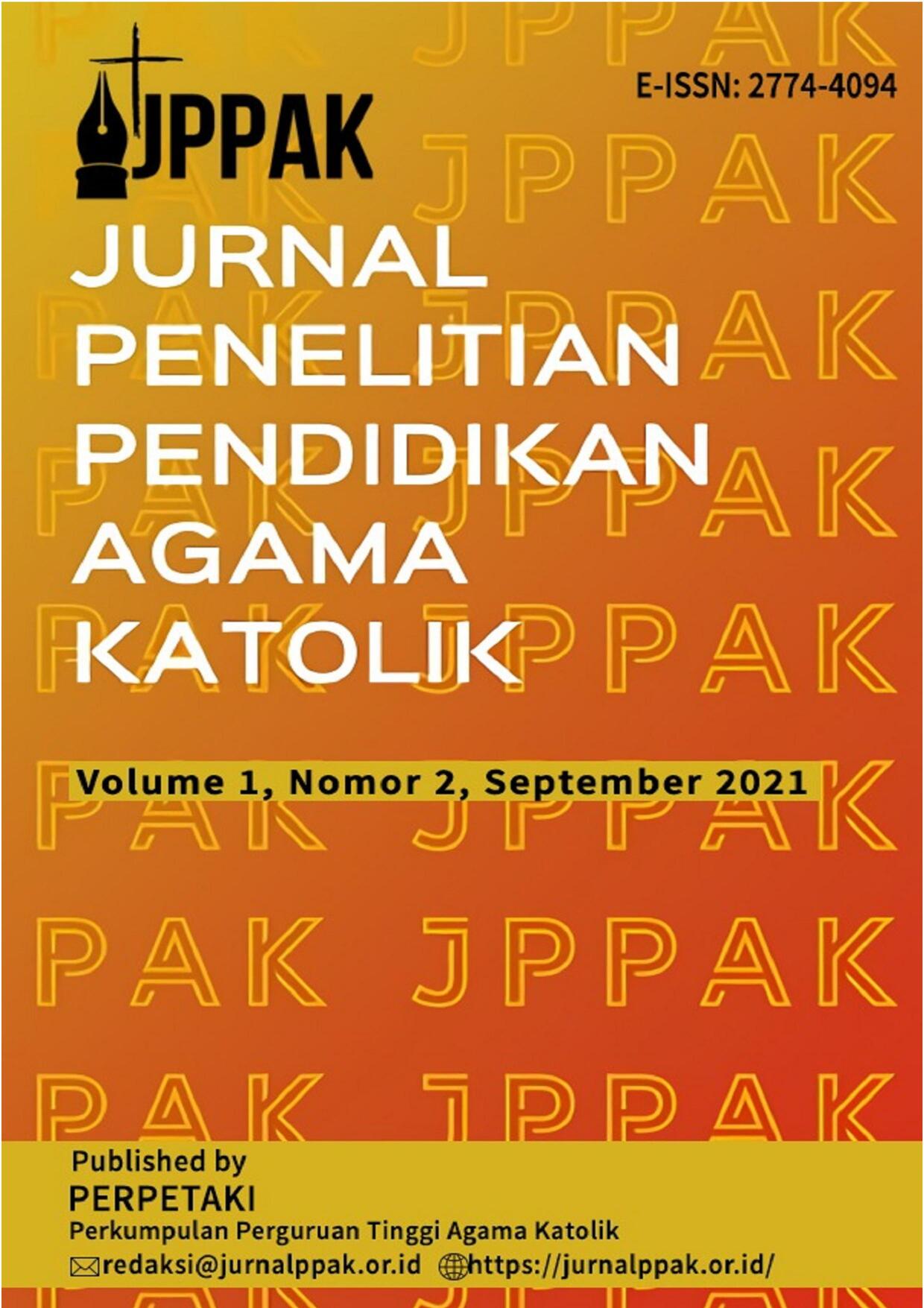The Effect of Using Active Innovative Creative Effective Fun Learning Methods on Academic Achievement of VIII Grade of Catholic Religious Education at Private Junior High School Santo Xaverius 2 Kabanjahe
DOI:
https://doi.org/10.52110/jppak.v1i2.29Keywords:
PAIKEM; Academic Achievement; LearnerAbstract
The study aims to know and analyze the effects of innovative active learning methods that are effective in the most fun and Bahasa, known as the PAIKEM method, judging by learners' academic achievements. The research question is how using innovative, innovative learning methods is particularly pleasant to students' academic achievements in Catholic religious education lesson in class VIII B at a private secondary school Saint Xaverius 2, Kabanjahe. Data is collected from interviews, observation and documentation. The research key informants consist of school teachers, Catholic religious education teachers, and students themselves. An object of research as primary data of the study is the effect of Active, Innovative, Creative, Effective and Fun (PAIKEM) learning methods on the academic achievements of the students. Collected data from the fields will be analyzed using a qualitative approach to reproduce data displays and to conclude research data. To quantify the validity of data research researchers used triangulation both in techniques and sources. Research indicates that the use of PAIKEM learning method brings about a positive impact on the students' academic achievements. The challenge for now is the online study (because of the pandemics). Regardless, it is expected that both online learning and face-to-face learning will be implemented, also in the future.
Downloads
##submission.downloads##
Submitted
Accepted
Published
How to Cite
Issue
Section
License
Copyright (c) 2021 Jurnal Penelitian Pendidikan Agama Katolik

This work is licensed under a Creative Commons Attribution 4.0 International License.
Copyright Notice and Permissions
Jurnal Penelitian Pendidikan Agama Katolik offers immediate open access to all its content on the principle to make researches freely available to the public, especially to the scholars, to support greater global exchanges of knowledge. This journal encourages all scholarly authors to allow their research openly available, free access and without time restrictions.
All articles published Open Access will be immediately and permanently free for everyone to read and download. Under the CC BY-SA 4.0 license, authors retain ownership of the copyright for their article, however authors grant others permission to use the content of publications in Jurnal Penelitian Pendidikan Agama Katolik (JPPAK) in whole or in part provided that the original work is properly cited. Users (redistributors) of Jurnal Penelitian Pendidikan Agama Katolik (JPPAK) are required to cite the original source by including at least: the full title of the article, the author's or authors' full name(s), JPPAK as the initial source of publication, year of publication and volume number using a propriate citing method.
Copyright encompasses exclusive rights to reproduce and deliver the article in all form and media, including reprints, photographs, microfilms and any other similar reproductions, as well as translations. The reproduction of any part of this journal, its storage in databases and its transmission by any form or media, such as electronic, electrostatic and mechanical copies, photocopies, recordings, magnetic media is prohibited without consent of Jurnal Penelitian Pendidikan Agama Katolik (JPPAK).
Jurnal Penelitian Pendidikan Agama Katolik (JPPAK) is licensed under a Creative Commons Attribution Share-Alike 4.0 International. (CC BY-SA 4.0)
Authors who publish with Jurnal Penelitian Pendidikan Agama Katolik (JPPAK) agree to the following terms:
- Authors retain copyright and grant the journal right of first publication with the work simultaneously licensed under a Creative Commons Attribution Share-Alike 4.0 International (CC BY-SA 4.0) license that allows others to share the work with an acknowledgement of the work's authorship and initial publication in this journal.
- Authors are able to enter into separate, additional contractual arrangements for the non-exclusive distribution of the journal's published version of the work (e.g., post it to an institutional repository or publish it in a book), with an acknowledgement of its initial publication in this journal.
- Authors are permitted and encouraged to post their work online (e.g., in institutional repositories or on their website) after the publication on JPPAK, as long as it not published on other OJS for it will be treated as plagiarism by plagiarism checker apps. It can lead to productive exchanges, as well as earlier and greater citation of published work (See The Effect of Open Access).












